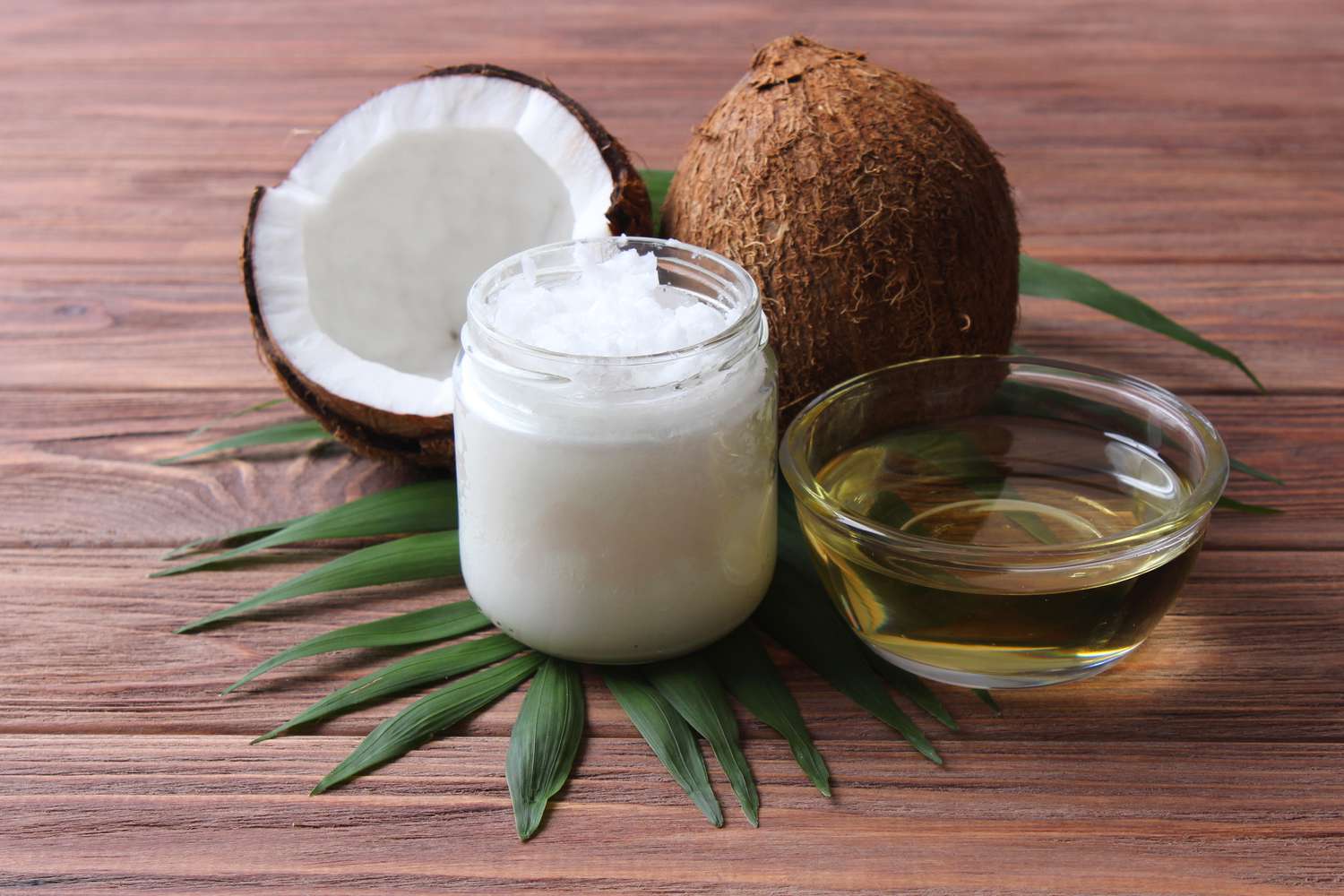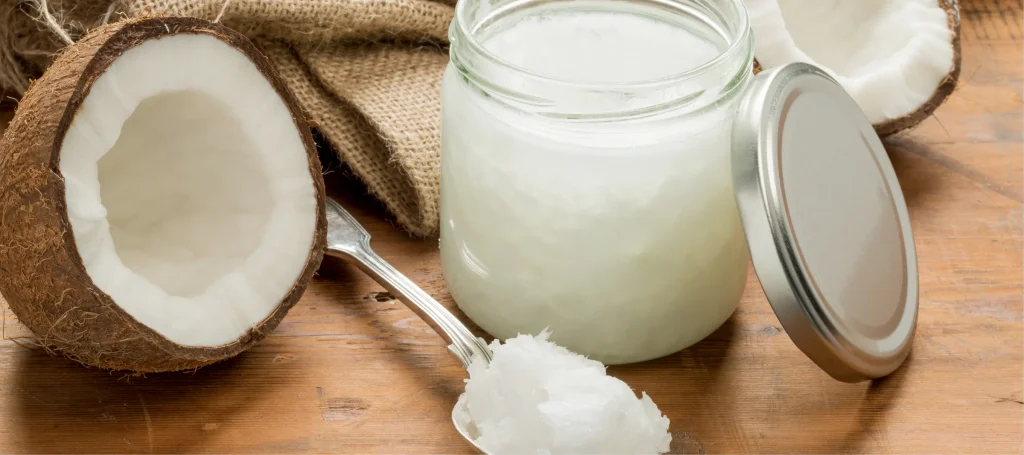
Substitutes for Coconut Oil
Table of Contents
Best Substitutes for Coconut Oil: The Ultimate Fashion-Forward Guide 2025
In beauty, wellness, and style, Substitutes for coconut oil has gained a reputation as the ultimate natural wonder solution. Whether for hair treatment and skin care, homemade beauty tips, or even cooking, coconut oil is an essential part of many fashion-forward young women’s self-care kits. But what do you do when you’re out of coconut oil, are allergic to it, or just want to try other alternatives? Luckily, the natural beauty universe is vast, and there are several coconut oil alternatives that suit your beauty and lifestyle requirements.
If you’re an on-trend, contemporary woman perpetually searching for the latest best-kept beauty secret, it’s time to learn about substitutes for coconut oil that are still in line with your hip, conscious, and fashion-forward attitude about self-care.
Why Seek Substitutes for Coconut Oil?
Although Substitutes for coconut oil is adored for its multiuse abilities, there are a few reasons one would need a substitute:
- Allergies or sensitivity of the skin: Not all skin gets along with coconut oil.
- Blocked pores: Non-toxic though Substitutes for coconut oil may be, it can block pores in some, causing breakouts.
- Preference for texture or scent: Others just don’t like the smell or greasy texture of Substitutes for coconut oil.
- Vegan or green living: Certain production methods associated with coconut oil aren’t always sustainable or ethical, so eco-friendly women seek alternatives.
Regardless of your motive, do not stress. You can definitely do it with alternative products that yield the same glamour benefits without over-relying on coconut oil.
The Top Alternatives to Coconut Oil
Now let’s dissect the top alternatives to coconut oil, particularly for women who aspire to remain glowing, in-style, and completely fabulous.
1. Shea Butter
If you’re used to using coconut oil for moisturizing, shea butter is a luxurious and powerful replacement. It’s thicker and more nourishing, especially in colder months.
- Best for: Dry skin, hair masks, body butters
- Texture: Thick, rich, creamy
- Why it works: Like coconut oil, it’s full of fatty acids and vitamins that support glowing skin.
Use shea butter the same way you would coconut oil — apply it to elbows, blend it with essential oils, or melt it into homemade treatments.
2. Jojoba Oil
Jojoba oil is actually a wax, not an oil, but its chemical composition is remarkably similar to the sebum that your skin naturally produces. That makes it an ideal non-comedogenic (won’t clog your pores) choice.
- Best for: Facial moisturizers, removing makeup, acne skin
- Texture: Light, quickly absorbed
- Why it works: It won’t lead to breakouts like coconut oil.
Substitute for coconut oil with jojoba oil in your skincare routine for a lightweight, breathable finish that won’t mess with your makeup look.
3. Argan Oil
Dubbed “liquid gold,” argan oil is a bottle of hydrating, shining goodness. Loads of fashionistas already use it in hair products, but it’s also an excellent skin treatment.
- Best for: Taming frizz, hair masks, anti-aging skin care
- Texture: Light to medium
- Why it works: Similar for coconut oil, it provides intense nourishment without a weighty texture.
Runway favorite of models seeking sleek hair with no buildup — no coconut oil needed.
4. Avocado Oil
Rich and indulgent with vitamins A, D, and E, avocado oil is an elixir that far surpasses coconut oil in every aspect.
- Best for: Hair treatments, dry skin, nail care
- Texture: Medium-thick, intensely moisturizing
- Why it works: The nutrient content promotes collagen growth, similar to coconut oil.
Use it as a base for body scrubs or as a hair serum at night. Coconut oil is not the only green goddess in town.
5. Sweet Almond Oil
The crowd-pleaser for sensitive skin is sweet almond oil, a gentle and hypoallergenic oil that mixes well into beauty regimens.
- Best for: Baby skin, treatments under the eyes, massage oil
- Texture: Light, velvety
- Why it works: It’s full of Vitamin E, similar to coconut oil, but it absorbs faster.
It’s also less oily, so you can apply it to your skin and go out — no oily shine, unlike coconut oil tends to leave.
6. Olive Oil
Yes, your kitchen essential is a beauty treasure too. Olive oil has been utilized as a skin and hair remedy for years, particularly in Mediterranean beauty practices.
- Best for: Night skincare, deep conditioning, cuticle care
- Texture: Heavy, emollient
- Why it works: It contains comparable fatty acids and antioxidants to coconut oil.
It’s more dense, so overnight application or for those wanting extreme moisture, similar to using coconut oil for intense hydration.
7. Grapeseed Oil
If you’re looking for a very lightweight substitute for coconut oil, grapeseed oil is a smart choice. It’s great for oily and acne-prone skin.
- Best for: Balancing oily skin, light hydration, scalp treatments
- Texture: Thin, light
- Why it works: It’s high in linoleic acid, which coconut oil lacks, helping to balance oil production.
Fashionistas who love minimalist, no-fuss beauty love grapeseed oil as a daily go-to that doesn’t overwhelm the skin.

8. Babassu Oil
Less popular but gaining favor, babassu oil is derived from a Brazilian palm and possesses an almost identical consistency and profile as coconut oil.
- Recommended for: Hair treatment, skin care, scalp massage
- Consistency: Solid at room temperature, similar to coconut oil
- Why it works: It contains similar medium-chain fatty acids and an odorless scent.
If you’re looking for something that behaves like coconut oil but with the same smell or comedogenic potential, babassu is the ideal copycat.
How to Select the Ideal Coconut Oil Substitute
When substitutes for coconut oil, keep the following in mind:
- Your skin type: Dry, oily, sensitive, or combination.
- Your intention: Are you moisturizing, removing makeup, or conditioning hair?
- Scent preference: Some oils are neutral, some are fragrant.
- Texture tolerance: Light oils absorb quickly; thick butters are more occlusive.
Don’t be shy about combining. Most style-conscious women mix and match their own creations, blending oils and butters to develop personalized treatments that suit their unique skin requirements.
Coconut Oil Is Amazing—But It’s Not the Lone Star
Let’s get real: coconut oil is all-around, high-functioning, and a great fit for many. But not because it’s the ultimate beauty fix. Whether you’re fighting acne, seeking a lighter look, or just enjoy experimenting with new trends, it’s liberating to know there are tons of high-end, effective alternatives to Substitutes for coconut oil.
Being a fashion-forward young woman means staying ahead of the curve, and part of that is knowing when to switch it up. Try incorporating some of these coconut oil alternatives into your daily glam routine and see which ones become your new beauty best friends.
Final Thoughts
You don’t have to be beholden to Substitutes for coconut oil to have glowing skin, luscious locks, and sleek beauty regimens. You can choose to indulge in the richness of shea butter, the smoothness of argan oil, or the lightness of jojoba—the world of beauty is full of options.
Next time you’re out of Substitutes for coconut oil, don’t freak out—take the chance to upgrade your beauty with a stylish, efficient substitute.
FAQ:-
Coconut Oil Substitutes for Young Female Marketers
Young female marketers spend much time running around, working long hours and maintaining personal care routines. Though coconut oil is a favorite among many, substitutes can provide special benefits. Argan oil contains vitamin E, making it perfect for skin and hair care. Jojoba oil replicates the natural sebum of skin and gets absorbed well. Rosehip oil, full of antioxidants, aids in skin repair. Shea butter is a rich moisturizer and good for dry skin. Grapeseed oil is light and ideal for oily or acne skin. These natural alternatives offer effective hydration and multi-purpose solutions to Substitutes for coconut oil.
Looking Beyond Substitutes for Coconut Oil Alternatives
Coconut oil is trendy in beauty and the kitchen, but there are many useful alternatives. Argan oil and jojoba oil are good for skin and hair care by offering hydration and not clogging pores. Shea butter offers rich moisture, while rosehip oil helps reduce scars and fine lines. In cooking, olive oil and avocado oil serve as heart-healthy alternatives with high smoke points. Grapeseed oil is light and versatile for both culinary and cosmetic use. Exploring coconut oil substitutes opens up a world of nourishing, natural choices.
Coconut Oil Alternatives for Young Women in Business
Professional young women in business look for effective, natural self-care products to keep up with their active lifestyles. Although coconut oil is a favorite, substitutes such as argan oil provide rich hydration and a non-oily finish—great for busy regimens. Jojoba oil stabilizes skin naturally, whereas shea butter offers intense hydration for dry skin. When a light option is desired, grapeseed oil is great. These Substitutes for coconut oil substitutes promote both wellness and professionalism.
Top 10 Coconut Oil Alternatives for Young Female Entrepreneurs
Young female entrepreneurs tend to look for effective, natural alternatives to coconut oil for skincare, haircare, and well-being. The top 10 alternatives are as follows:
1. Argan oil – richly nourishing and light.
2. Jojoba oil – replicates skin’s natural sebum.
3. Shea butter – highly moisturizing.
4. Avocado oil – vitamin-rich .
5. Olive oil – perfect for skin, cooking, and everything in between.
6. Rosehip oil – aids repair and anti-aging of the skin.
7. Grapeseed oil – light, non-comedogenic, and antioxidant-rich.
8. Almond oil – calming and vitamin-enriched.
9. Hemp seed oil – regulates oil production and soothes inflammation.
10 Sunflower oil – rich in vitamin E and ideal for sensitive skin.
These Substitutes for coconut oil alternatives promote versatility, efficacy, and convenience—ideal for enterprising, health-aware women in business.
Coconut Oil Alternatives Essential for Fashion and Business
In the hurried life of business and fashion, multitasking women need coconut oil substitutes. Argan oil provides sleek hair and radiant complexion. Jojoba oil manages shine without pore clogging. Shea butter calms dry spots, with grapeseed oil providing light hydration—ideal for smooth, professional looks on the run.








